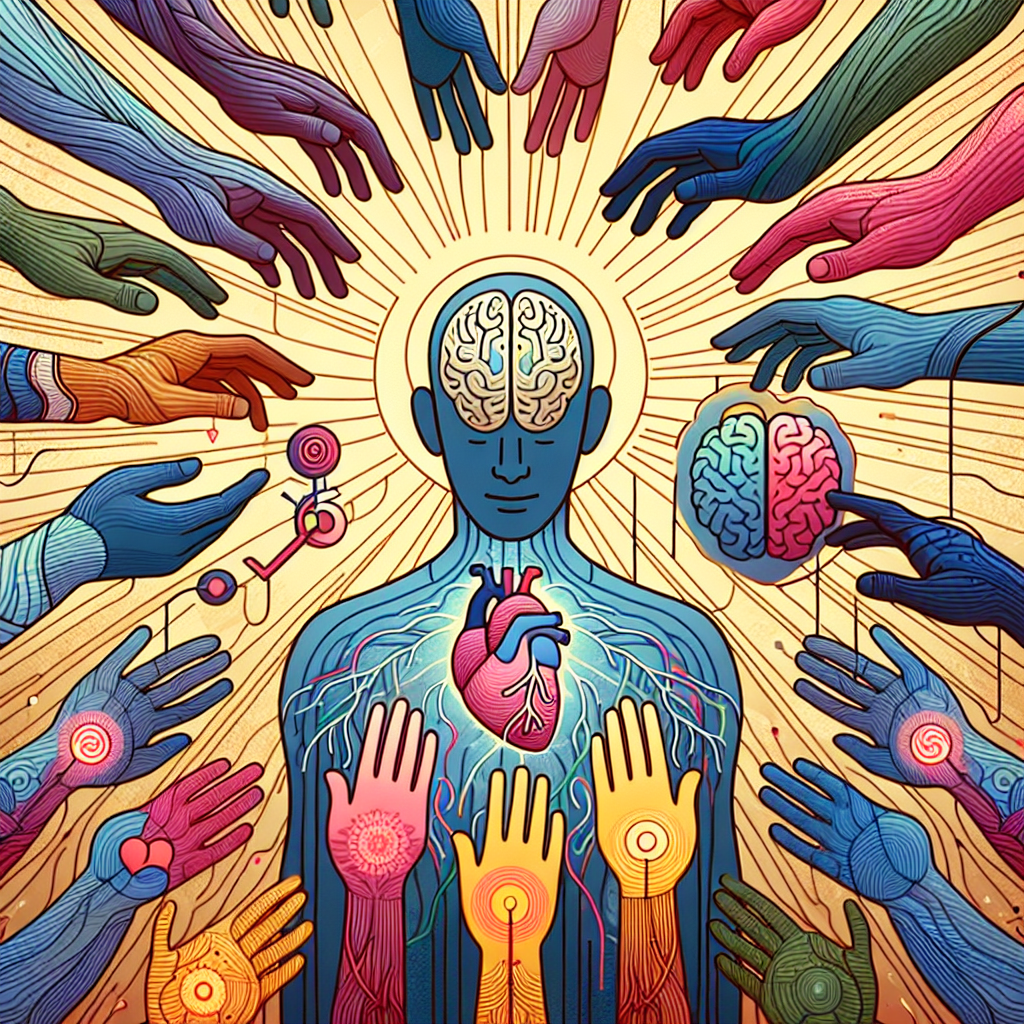
Introduction
In today’s world, discussions around gender identity and expression are more prominent than ever. Among the most crucial topics in this conversation is gender dysphoria—a term that describes the psychological distress encountered when an individual’s gender identity does not align with their assigned sex at birth. Understanding Gender Dysphoria and Mental Health: The Impact of Support Systems is vital, as supportive environments significantly influence the mental well-being of individuals experiencing gender dysphoria.
The journey through gender dysphoria is complex and often fraught with challenges, as societal norms, misconceptions, and personal struggles intertwine. However, one undeniable factor stands out: the impact of support systems. In this article, we examine how family, friends, and community can play a pivotal role in shaping mental health outcomes for those experiencing gender dysphoria.
The Intersection of Gender Dysphoria and Mental Health
Understanding Gender Dysphoria
Gender dysphoria manifests in various ways, affecting emotional, social, and psychological well-being. Individuals may experience anxiety, depression, or feelings of isolation. According to the American Psychiatric Association, approximately 0.6% of adults identify as transgender, and many experience gender dysphoria at some point in their lives.
Table 1: Mental Health Outcomes for Individuals with Gender Dysphoria
| Mental Health Condition | Prevalence Among Transgender Individuals |
|---|---|
| Depression | 46% |
| Anxiety Disorders | 37% |
| Suicidal Ideation | 40% |
| Substance Abuse Disorders | 15% |
This staggering data underscores the need for effective support systems, as the intersection between gender dysphoria and mental health often leads to significant emotional distress.
Emotional Struggles of Gender Dysphoria
Individuals navigating gender dysphoria frequently report feelings of inadequacy, fear, and distress. Common emotional struggles include:
- Identity Confusion: The clash between gender identity and societal expectations can lead to confusion and self-doubt.
- Isolation: Misunderstanding and lack of acceptance from peers can isolate individuals, exacerbating mental health issues.
- Fear of Rejection: The anxiety surrounding acceptance can cause additional stress and hinder individuals from being their authentic selves.
The Role of Support Systems
Family Support: A Backbone for Transformation
Support from family can significantly impact the journey through gender dysphoria. Family acceptance can reduce feelings of anxiety and depression. The following case study highlights this point:
Case Study: Jamie’s Journey to Acceptance
Jamie, a 21-year-old transgender woman, struggled with severe depression due to her inability to express her true identity. Initially fearful of her family’s reaction, she chose to come out during a family dinner. To Jamie’s relief, her family responded with love and support, helping her to seek therapy and ultimately transition.
Analysis: Jamie’s experience illustrates how unconditional family support can counteract negative mental health outcomes, affirming the critical influence of familial acceptance.
Peer Support: Building Resilience
Friendship networks can provide emotional validation and a sense of belonging. Peer support groups, particularly those tailored for LGBTQ+ individuals, can foster environments where people can share their experiences and feelings openly.
Case Study: The Peer Support Group Initiative
In a city where LGBTQ+ representation was limited, a peer support group called Pride Connect was formed. Members shared their journeys and discussed common challenges. Participants reported feeling empowered and more confident in their identities after attending the group regularly.
Analysis: This case highlights the positive impact peer support can have on mental health, illustrating the necessity of communal spaces for individuals with gender dysphoria.
Professional Support: Therapy and Counseling
Mental health professionals can equip individuals with coping strategies to deal with the challenges associated with gender dysphoria. A supportive therapist can bridge the gap between distress and mental well-being.
Case Study: Therapeutic Approaches that Worked
Mike, a 30-year-old transgender man, faced discrimination at work. With the help of a therapist specializing in gender identity issues, he learned coping mechanisms and effective communication strategies for confronting prejudice. Over time, he built resilience, significantly improving his mental health.
Analysis: Mike’s journey underlines how professional support can lead to empowerment and positive mental health outcomes.
The Positive Impact of Support Systems
Mental Health Improvements Among Supported Individuals
Research shows that support systems can significantly improve mental health outcomes for those with gender dysphoria. A 2021 study found that individuals with supportive families and communities reported:
- 30% lower instances of depression
- 25% lower rates of anxiety
- Increased levels of self-acceptance and resilience
These figures emphasize the undeniable correlation between support systems and improved mental health for those experiencing gender dysphoria.
Chart 1: Mental Health Improvement with Different Types of Support
| Type of Support | Percentage Improvement in Mental Health |
|---|---|
| Family Support | 45% |
| Peer Groups | 30% |
| Professional Therapy | 35% |
Barriers to Effective Support
Societal Stigma and Misunderstanding
Despite the clear benefits of support systems, societal stigma often creates barriers. Fear of judgment or ridicule can prevent individuals from seeking necessary support. Families too may struggle with understanding gender dysphoria, leading to decreased acceptance.
Lack of Resources
In many areas, particularly rural communities, access to support services may be limited. Mental health professionals may not have adequate training in dealing with gender dysphoria, further exacerbating the problem.
Building a Supportive Environment
Education and Awareness
Encouraging open conversations about gender identity at home, school, and in the workplace can break down stigma. Programs aimed at educating individuals about gender dysphoria can foster empathy and understanding, creating environments conducive to acceptance.
Creating Inclusive Policies
Workplaces and educational institutions can implement inclusive policies that recognize and support individuals experiencing gender dysphoria. This could include gender-neutral bathrooms, sensitivity training, and clear anti-discrimination policies.
Conclusion
Understanding Gender Dysphoria and Mental Health: The Impact of Support Systems is essential for fostering an inclusive society. The emotional struggles individuals face can be vastly mitigated by supportive networks comprised of family, peers, and professionals.
To create a better world, we must advocate for acceptance, provide resources to help, and educate ourselves and others about gender identity. By doing so, we not only improve the lives of individuals facing gender dysphoria but also contribute to enriching our communities as a whole.
Actionable Takeaway
If you know someone who is navigating gender dysphoria, consider ways to provide support. Whether it’s through open dialogue, offering to learn together, or simply standing as an ally, every action counts. To those experiencing these challenges, remember: you are not alone, and help is available.
FAQs
1. What is gender dysphoria?
Answer: Gender dysphoria is the psychological distress experienced when an individual’s assigned gender at birth does not align with their gender identity.
2. How can I support someone with gender dysphoria?
Answer: You can support them by listening without judgment, educating yourself about gender issues, and advocating for their acceptance in social environments.
3. What professional support is available and how effective is it?
Answer: A variety of mental health professionals offer therapy focused on gender identity, with studies showing that counseling significantly improves mental health for those experiencing gender dysphoria.
4. Can family support make a difference?
Answer: Yes, familial support is shown to greatly reduce anxiety and depression in individuals experiencing gender dysphoria, leading to better overall mental health outcomes.
5. What can be done to reduce stigma surrounding gender dysphoria?
Answer: Education and open conversations about gender identity in various spaces, such as schools and workplaces, can help normalize discussions about gender dysphoria, reducing stigma and promoting acceptance.
In embracing the narrative around Gender Dysphoria and Mental Health: The Impact of Support Systems, we move toward creating compassionate societies where every individual can feel valid and valued.

















